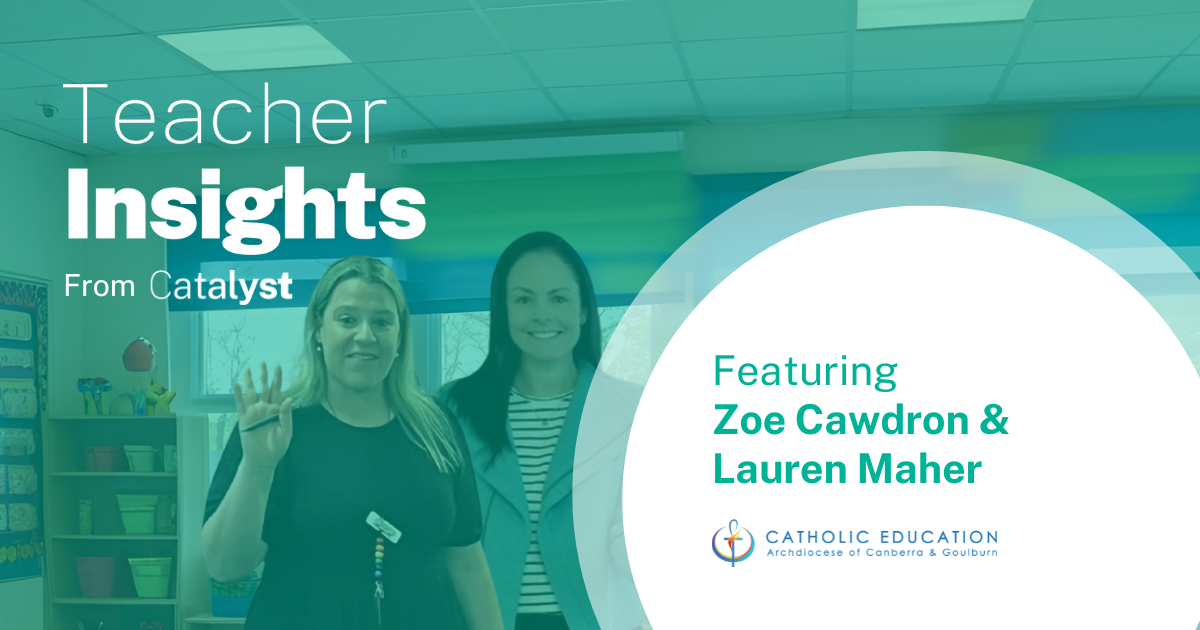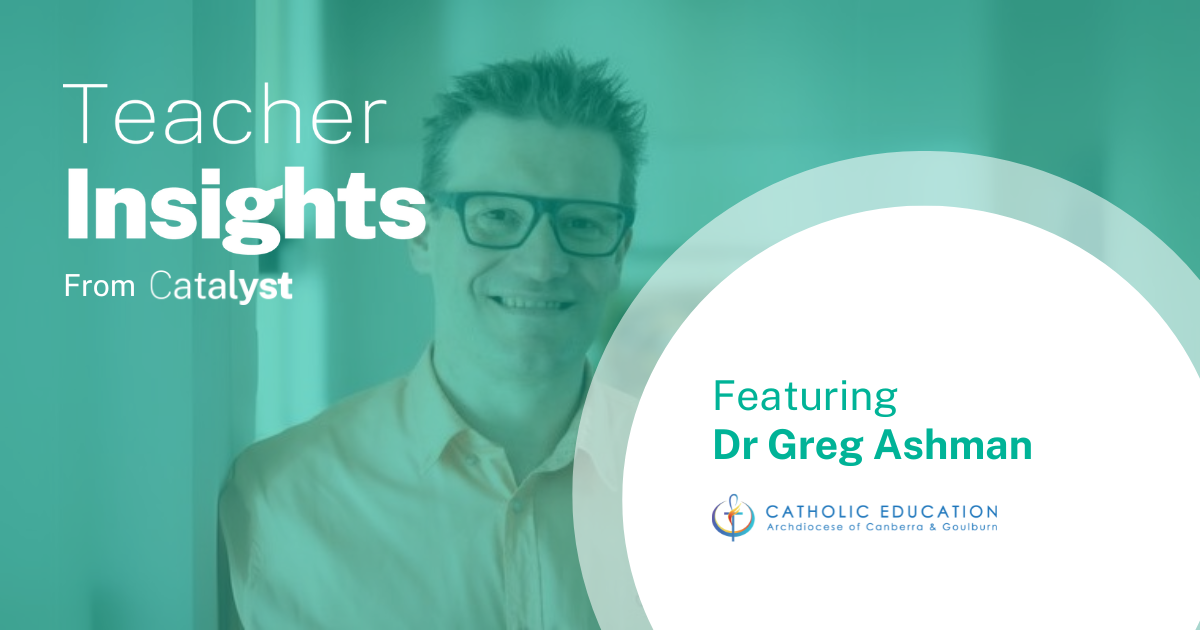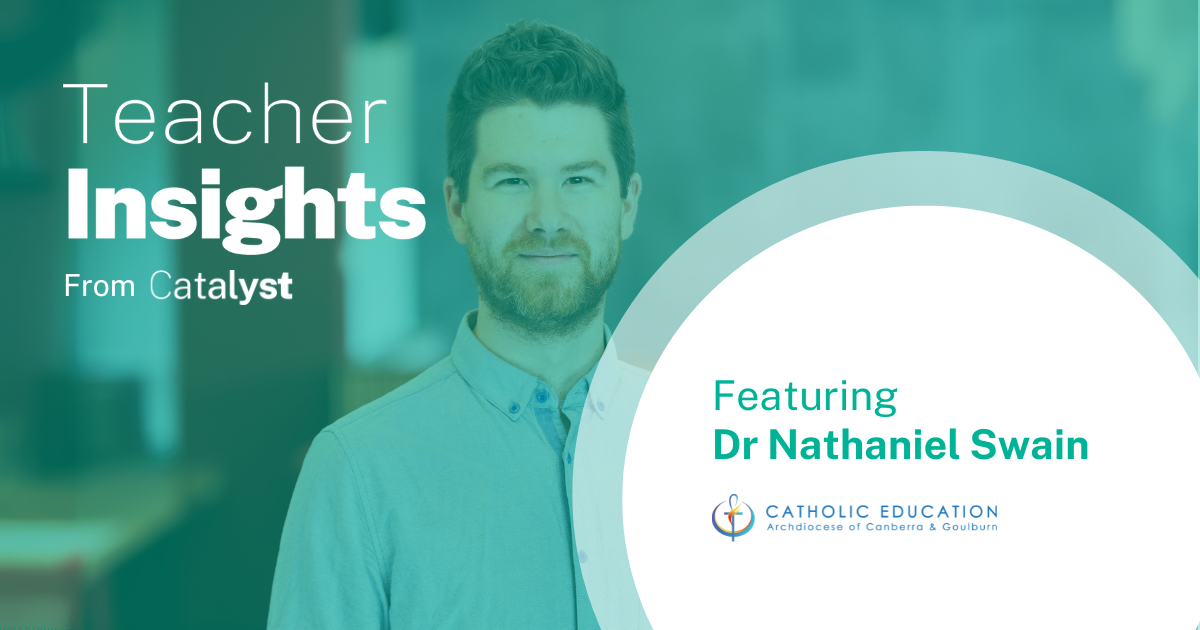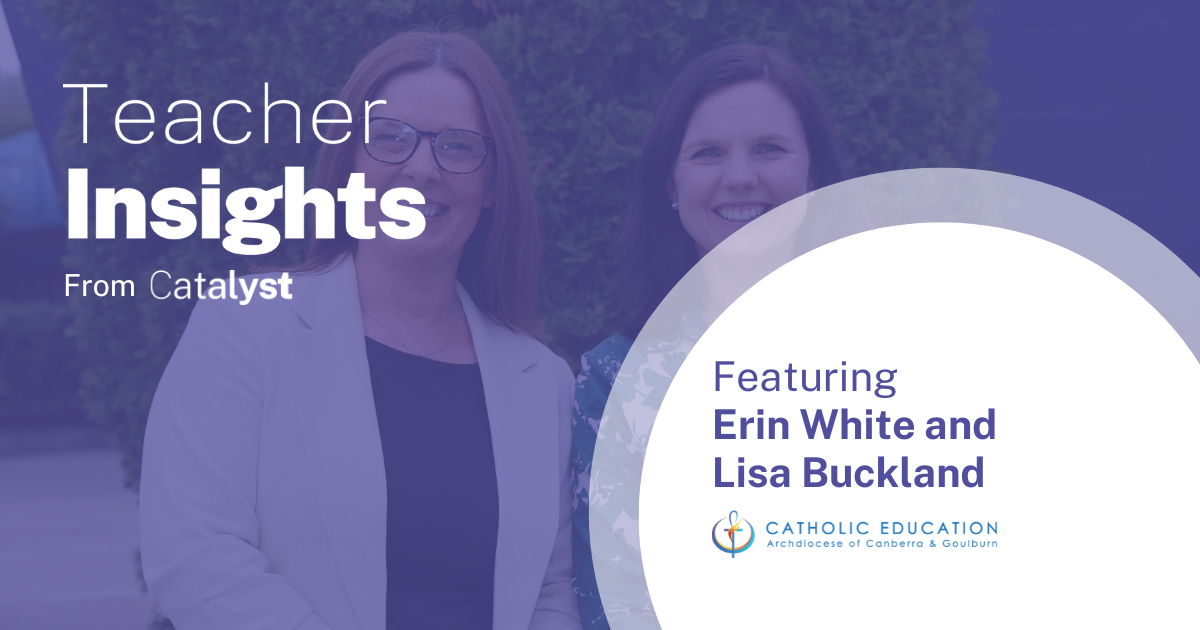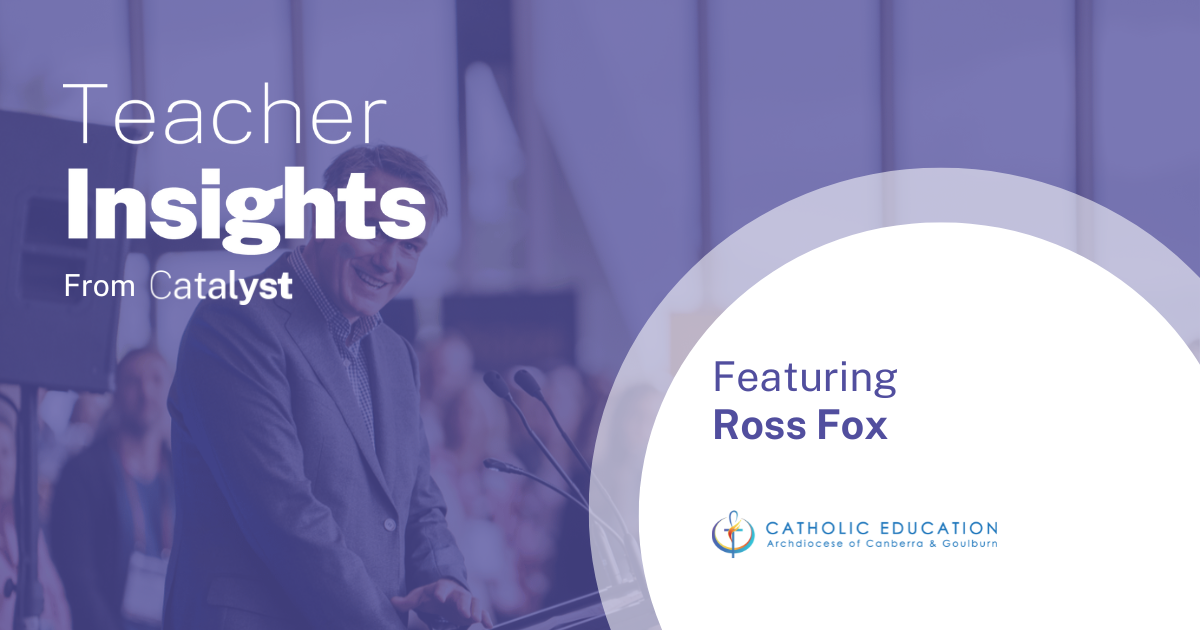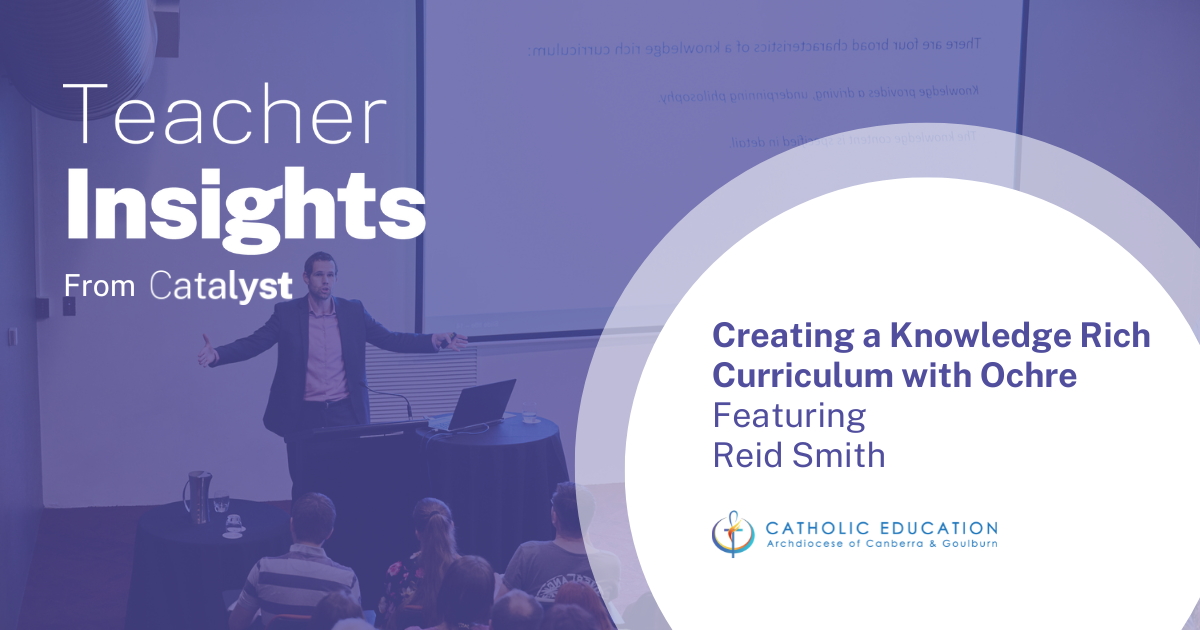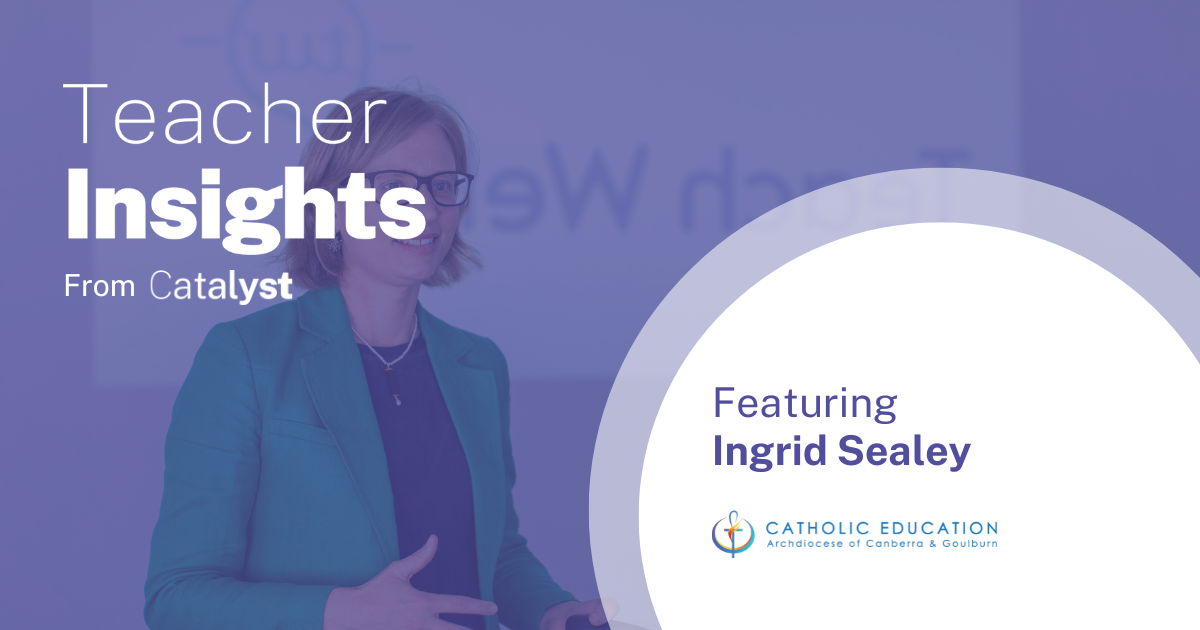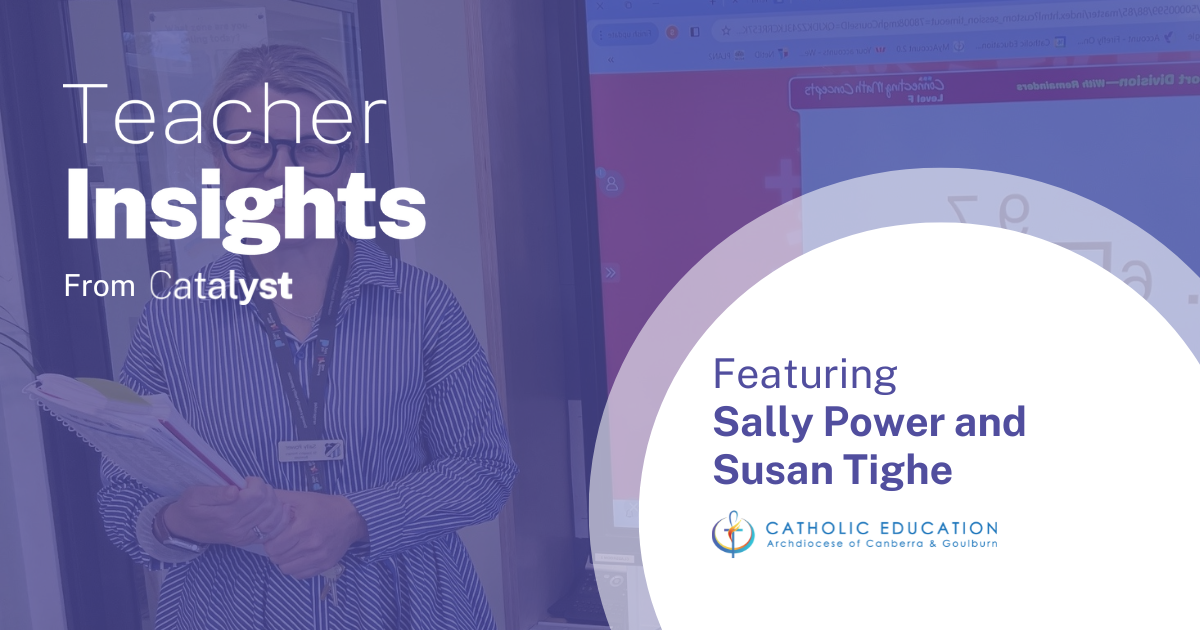S3|E4: Transforming Teaching Through Catalyst with St Patrick’s Primary School
Episode Overview
In this episode, we sit down with staff from St Patrick’s Primary School Bega, a school that has embraced the Catalyst initiative to transform teaching and learning. From instructional programs to leadership strategies, we explore how this school has aligned its practices to create a knowledge-rich, student-centered environment.
School-Wide Impact
- Catalyst Learnings
- How Catalyst has influenced school-wide practices.
- Implementation of instructional programs: Reading Mastery, Spelling Mastery, InitialLit, and CMC supplemented with units developed in partnership with Ochre.
- Emphasis on a knowledge-rich curriculum: Teaching deeper, not broader, while meeting outcomes.
- Curriculum beyond DI Programs
School Routines & Behaviour
- Creating Consistency
- Aligning expectations around routines and behaviour.
- Tools and strategies: Behaveability (Ian Luscombe), scripted routines
Teaching Practice
- Teachers share their experiences and reflections on Catalyst’s impact.

